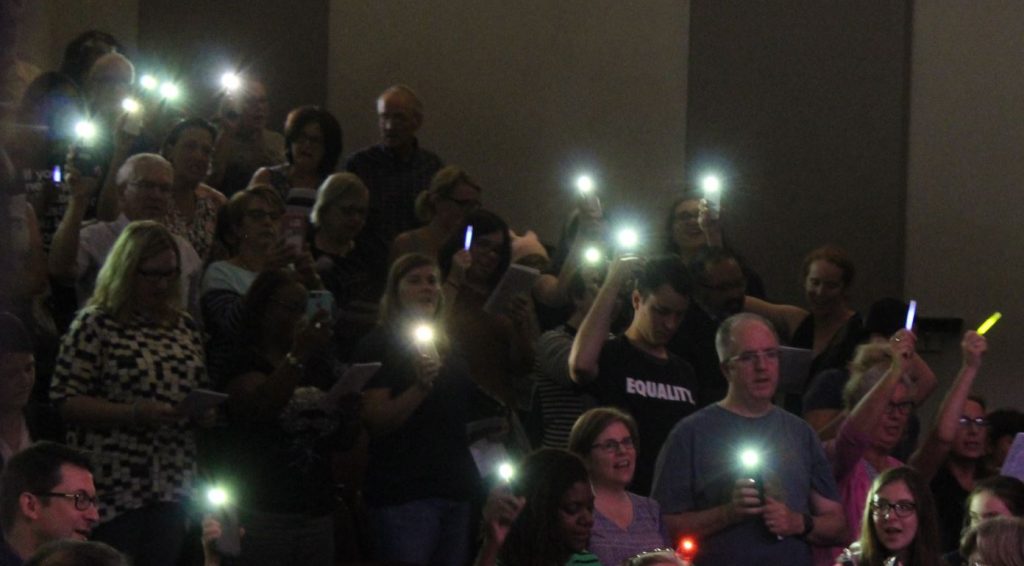Continued mass shootings could be desensitizing Americans to violence
Dr. Pontus Leander of Wayne State University’s Center for Peace and Conflict Studies says the normalization of violence culture in the US could lead to more shootings.

Residents hold vigil at the Grosse Pointe War Memorial to honor the victims of the violence in Charlottesville, VA in August 2017. Sandra Svoboda/WDET
It seems like whenever you turn on your TV, check social media or even tune into the radio, the rise in mass shootings consumes the headlines.
It’s something that has become an unavoidable reality in the U.S. But what does the oversaturation of violence in the media do to our psyche?
What’s happening to our minds as we continue to process mass shootings in this country?
To learn more, CultureShift spoke with Dr. Pontus Leander, the director of the Center for Peace and Conflict Studies at Wayne State University.
“We might not notice that in a certain context or a certain situation, that we are gradually — over a period of weeks or months or years — getting used to the idea of a behavior that was previously not only not normative, but appalling.” — Dr. Pontus Leander, Wayne State’s Center for Peace and Conflict Studies
Listen: Dr. Leander explains why the oversaturation of gun violence in media could lead to more shootings.
Photo credit: Sandra Svoboda, WDET
Trusted, accurate, up-to-date.
WDET strives to make our journalism accessible to everyone. As a public media institution, we maintain our journalistic integrity through independent support from readers like you. If you value WDET as your source of news, music and conversation, please make a gift today.
